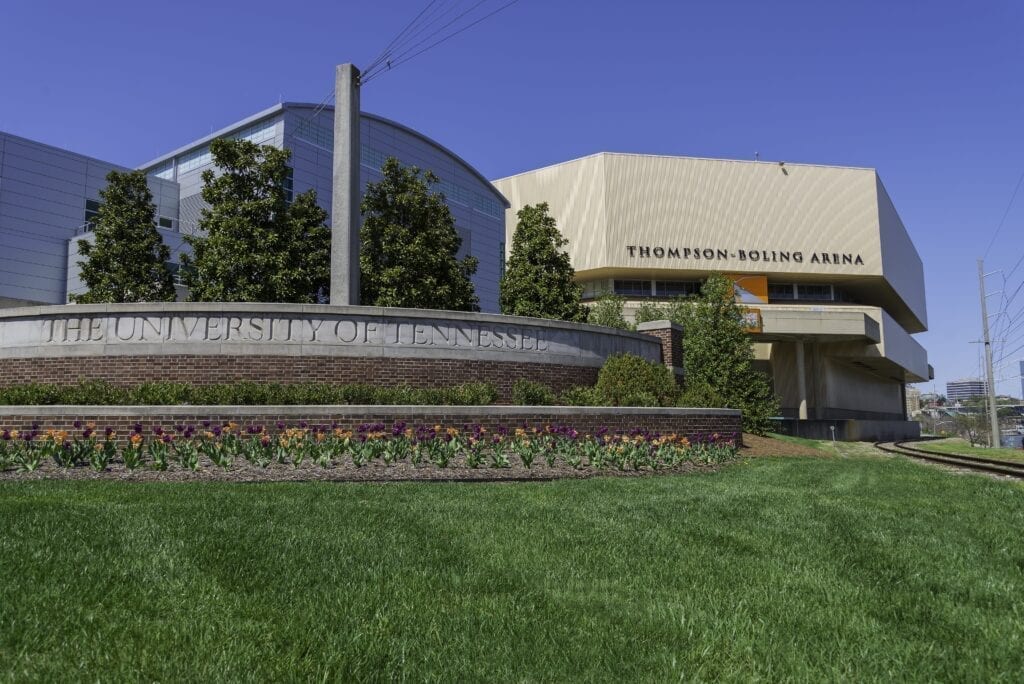UT Science Forum tackles nuclear energy
Used radioactive nuclear energy can be deadly or helpful, depending on how it’s handled.


//Photo by Ryan McGill
Dr. Stephen Skutnik, Assistant Professor at UT’s department of Nuclear Engineering says that the future of nuclear energy depends on if it’s viewed as trash or a treasure.
Skutnik addressed multiple forms of proposed storage methods such as geologic disposal, hydrogeologic disposal, ice sheet disposal and more outlandish solutions such as extraterrestrial and volcanic disposal.
Although scientists have the ability to store used fuel for decades, it is not seen a viable permanent solution.
According to Skutnik, geologic disposal is the only feasible option at this time. It involves storing the radioactive elements deep underground long enough to “run out the clock” on the materials so they are no longer radioactive.
However, “running the clock out” on elements such as Plutonium and Neptunium can take thousands of years. Before locking the elements away in their radioactive tombs, Skutnik supports the idea of isolating the Uranium, a less radioactive element, and reusing it for nuclear fuel.
Skutnik went on to point out that the United States’ method for handling used nuclear waste has not been widely supported. The Nuclear Waste Policy act of 1987 created a permanent, underground repository for radioactive nuclear waste in Nevada’s Yucca Mountain, located 100 miles north of Las Vegas.
In 2009, the Obama Administration defunded the Yucca Mountain repository efforts and began the Blue Ribbon Commission. The commission recognized the national need for a consent-base repository program to garner wide public support. The target date for completion is 2048.
The Unite States government hopes to model the program after Sweden and Finland’s programs, the most programs successful thus far.
Robin Hill, a former engineer at Oak Ridge National Laboratory, expressed optimism.
“I come to every seminar on the schedule,” Hill said. “I love it.”
“I made my living in this business with reactors, accelerators, fusion machines, waste management and cost benefit work for nuclear reactors,” Hill continued. “This stuff is important; I think the Baker Center should talk about this as well.
The political implications of nuclear energy reprocessing are heavy financial burdens and the possibility Plutonium and Uranium being used as a weapon. Currently, South Korea is seeking relief from a US treaty that prohibits the ability to enrich uranium or seek nuclear reprocessing.
In addition, Japan has been on a quest to recycle nuclear energy that has cost $25 million and generated no success.
“Understanding natural and biological processes is extremely important. The science forum gives students an opportunity to engage in additional educational opportunities that they wouldn’t otherwise see,” said Amanda Womac, president of UT Science Forum and Director of Communications for the Office of the Dean of the College of Arts and Sciences.
For more information about research and developments in science, visit the UT Science Forum in Thompson Boling Café from 12 p.m. to 1 p.m. every Friday.
Next week, Terry Hazen, Governor’s Chair for Environmental Biotechnology will be presenting methane issues. Temporary parking passes are available for the event.
Featured image by Ryan McGill
Edited by Ben Webb

